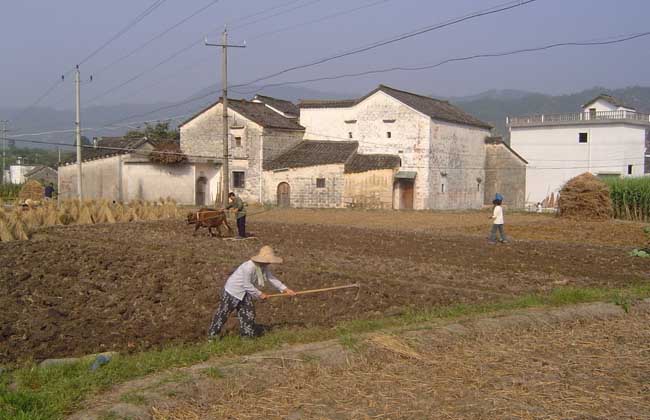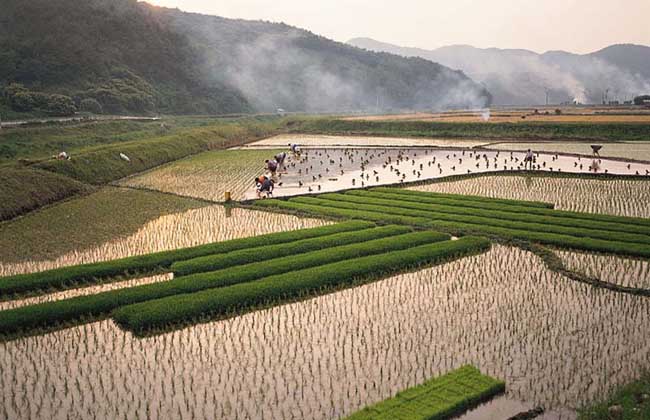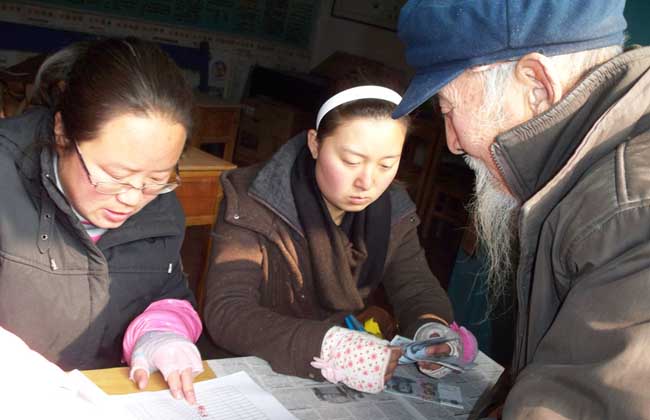New policy on rural land transfer in 2016

Rural land circulation refers to the behavior of rural household contracted land through legal form, retaining the right of contract and transferring the right of management to other farmers or other economic organizations. it is the product of the development of rural economy to a certain stage. through land transfer can carry out large-scale, intensive, modern agricultural management model, let's take a look at the new rural land circulation policy in 2016!
Standardize land transfer
However, at present, there are many problems in land transfer, such as more farmers' own transfer, less approval for the record of villages and towns, more oral agreement circulation, less written contracts and so on. It is urgent to formulate land transfer policy as soon as possible and standardize the procedure of land transfer. Local governments should gradually tighten the management of land transfer, standardize transfer procedures, improve contract management, standardize transfer contracts, and the circulation period shall not exceed the remaining years of the second round of rural land contracts. Once disputes occur in land transfer, it is difficult to deal with disputes and lack of legal protection. According to the data provided by the relevant departments, in recent years, the disputes caused by land transfer in various provinces and cities are on the rise year by year.
Speed up the determination of land rights
The registration of confirming the right of land is of far-reaching significance, which is beneficial to the circulation of land. The task of clarifying the property rights of collective land and speeding up the registration and issuance of rural collective land rights is very urgent and arduous. Promoting the registration and certification of rural collective land rights is a practical need to safeguard the rights and interests of farmers and land transferers and promote the harmony and stability of rural society. Through the registration and certification of rural collective land rights, we can effectively resolve disputes over rural collective land ownership, resolve rural social contradictions, confirm farmers' land rights in accordance with the law, and strengthen farmers' awareness of land property rights, especially the whole society. it will help to effectively safeguard farmers' rights and interests in the process of urbanization, industrialization and agricultural modernization.
Build a land trading platform
With the introduction of the land transfer system, it has accelerated the implementation of rural land transfer pilot projects one after another, directly promoted the establishment of rural property rights exchanges, set up a platform for rural land entry into the market, and established land circulation management and service organizations at county, township and village levels. develop various forms of land transfer intermediary service organizations, build county, township and village three-level broadband network information platform, timely and accurately disclose land circulation information. We will strengthen the collection, arrangement, filing and safekeeping of circulation information, and provide timely services such as land transfer policy consultation, land registration, information release, contract formulation, dispute arbitration and legal aid for the vast number of farmers.
Basic farmland protection system
The first of the main tasks of the central economic work is to effectively ensure the country's food security. This means that the red line of cultivated land should be strictly guarded, the red line of 1.8 billion mu of cultivated land must still be adhered to, and the existing area of cultivated land must remain basically stable. Under the new situation of the continuous expansion of agricultural land transfer and the construction of a new type of modern agriculture, the Ministry of Land and Resources will continue to implement the strictest cultivated land protection policy, and at the same time explore the innovation of cultivated land and basic farmland protection policy under the new situation. We will strengthen the protection of basic farmland, attach equal importance to quantity and quality, and effectively ensure the country's food security.
Mortgage loan of land contract right
The 2014 document has begun to encourage mortgage loans for land contractual management rights, and land transfer will be an opportunity to invigorate rural resources. Once the land can be standardized, then the mortgage loan becomes possible, and the land can increase in value. At the same time, agricultural land can create more relaxed management channels in production and life, and stimulate the enthusiasm of a number of large contractors. Carrying out the mortgage loan for the contracted management right of rural cultivated land has solved the problem that large growers can not meet the needs of large-scale planting due to the shortage of funds, effectively solved the problem of capital "bottleneck" in the development of large farming households, and promoted the intensive management of agricultural industry. Moreover, it is helpful for agriculture-related financial institutions to explore the innovation of rural financial products and services, and speed up the establishment of a modern financial system in rural areas. it has promoted the innovation of rural system and mechanism in rural areas, such as speeding up the issuance of the certificate of contracted management of cultivated land, improving the circulation market of rural cultivated land and the construction of agricultural risk guarantee mechanism, and constantly improving the degree of organization of agricultural production and management.
Unified construction land market in urban and rural areas
There are two prerequisites for agricultural land to enter the market: first, it must be operational construction land, and second, it must comply with planning and use control. In view of the existing problems of violation of laws and regulations, the government should reform the land expropriation system, standardize the land expropriation procedures, and establish a scientific and diversified land expropriation compensation system, security and employment system while tamping land power. Agricultural rich creators also hope that through the transformation of government functions, they can establish a unified transaction service platform for urban and rural land transfer. We will establish fair, open and transparent market rules, improve the mechanism that prices are mainly determined by the market, and establish a unified market for construction land in urban and rural areas. It is also said that the urban-rural dual structure is the main obstacle to the integration of urban and rural development. We should speed up the construction of a new agricultural management system, give farmers more property rights, and promote the equal exchange of urban and rural elements and the balanced allocation of public resources.
Promote the construction of urbanization
In the context of the acceleration of urbanization, as an important part of farmers' property, homestead could have provided the first capital for farmers to go to the city, but under the existing land management system, the circulation of homestead is still subject to many restrictions. Farmers of transfer households are allowed to sell contracted land, houses and residential land of compliance area and obtain property income on a voluntary basis by means of market transfer. This will relieve the worries of rural labor force from settling in cities. Although urbanization will become one of the main lines of China's economic development, the current homestead management still stays within the thinking framework of urban-rural dual structure. The main body of rural homestead circulation can be members of this collective economic organization, other village collective economic organizations, or urban residents. From the perspective of equality of real rights, there is a lack of legitimate basis for restricting the subject scope of rural homestead transfer.
Related
- A course of planting techniques and methods on how to grow carrots
- How to plant the latest tulips?
- Is it better to pick tea in the morning or in the afternoon? When is the best time for tea to be picked? what is the third or fifth tea?
- Launch Yuanxiao Happy combination Haocha + Tea Yuan healthy Taste
- Penghu Tourism "Fireworks 20 Parade with You"
- 2022 West Lake Happiness holds "Digital Revitalization Voucher" and draws iphone13 and laptop.
- Banqiao Fuzhou social houses are designed to change start-up combined with police elimination to create a safe and livable environment
- The convenient measure of "mechanical weeding" in Xinbei has been abused and the Agriculture Bureau has imposed heavy penalties on the illegal land consolidation.
- Changgeng University Joins Hands with Four Memory Factories to Rescue Memory Talent Shortage
- The list of Taiwan's top 100 MVP managers is listed by the Director-General of the Farmers' Association of Sanxia District.



